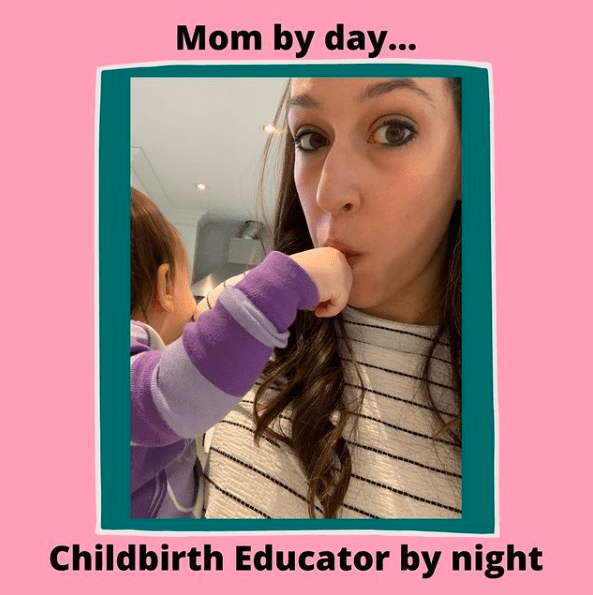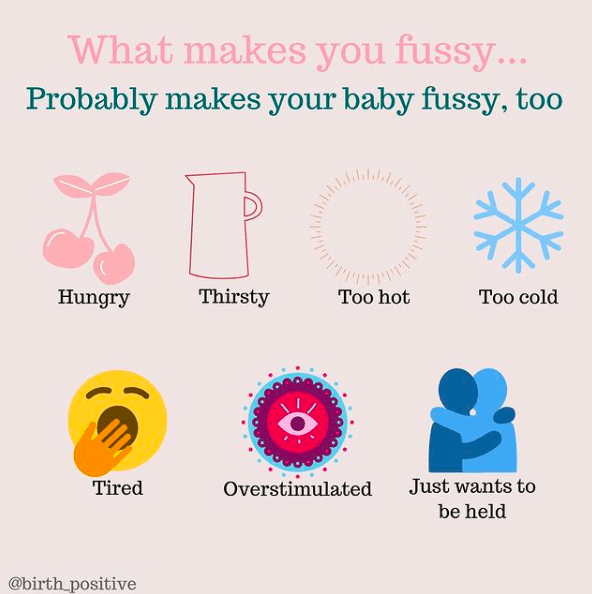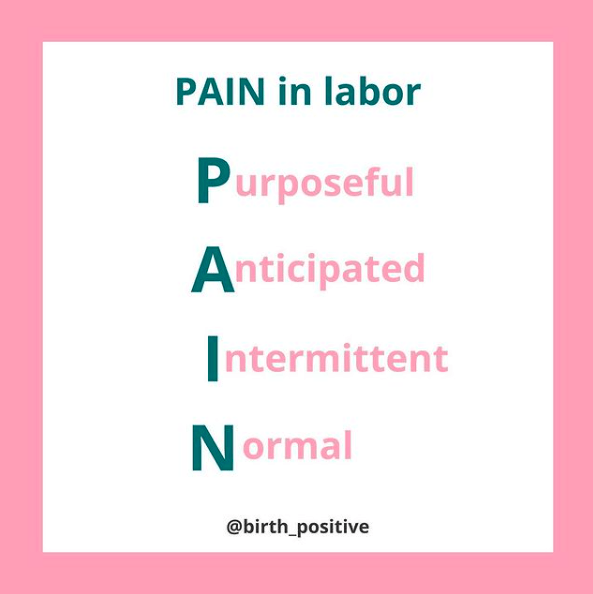Labor, birth, and the transition to motherhood can be hard to fully understand until you’re in it, but Lauren Seidman, Lamaze Certified Childbirth Educator, provides classes, coaching, and support groups to help expecting and new parents on this journey. The mother of three, now 30, worked as a consultant for six years, before deciding to leave her job there in order to be more available for her then 3-year-old son and 1-year-old daughter.
After the birth of her daughter, she realized she was spending any free time she had learning about pregnancy, birth, and motherhood. She wanted to channel this newfound passion into something productive, so she got certified as a childbirth educator. Now, she has her own business called Birth Positive Childbirth Education, where she teaches expecting parents what they need to know to prepare for birth and parenthood.
Lauren’s approach is very balanced and nonjudgmental; she recognizes that not everyone’s “ideal birth” will look the same. She defines important terms that may be foreign when you first get pregnant, teaches ways to cope with labor, and helps prepare parents to make informed decisions once it’s game time.
We sat down with Lauren to get the scoop on what made her so passionate about starting Birth Positive, how you can be more prepared if you’re an expectant mother, and to get her advice on launching a business from something you love.
How did you become a childbirth educator?

Before having children, I was working full-time as a consultant. After about two years of work, I had my first child. The company I worked for was, and continues to be, amazing about supporting parents. They offered a long parental leave—six months—and were great about flexibility—normally my work week involved being away three nights a week. As my son got older, though, I wanted to be around more, and it got emotionally harder for me to leave him during the day and overnight several times a month.
When I had my daughter, two years later, I tried to go back to work part-time after maternity leave, but, unfortunately, they couldn’t accommodate that type of schedule. I went back anyway, but it became increasingly obvious to my husband and me that this type of full-time consulting role was no longer working for me—and, frankly, for our family as a whole. So, I made the decision to leave my job in October 2017, right after my daughter’s first birthday, to become a stay-at-home mom or family COO (chief operating officer) as my husband and I call it.
Then, after about a year of just focusing on being home, I started to feel that I wanted something else, outside of my family responsibilities. During my pregnancies, and especially after my daughter’s birth, I became addicted to listening to podcasts and reading articles about birth. I thought that if I was going to be spending so much time on this passion, then maybe it would make sense to get certified and start teaching, so that’s what I did.
What led you to become so interested in birth and the postpartum experience?
In terms of getting interested in birth—through my own experiences I just realized how much there is to know and understand about the birth process. I wanted to make that information more accessible to people, because my hope was that through accurate information, people could reduce their fear and have more positive associations with birth. That’s one of the reasons why I chose the name Birth Positive. I also believe that knowledge is power, so having information can help people make more informed decisions, which could lead to better outcomes and more positive experiences.
Personally, the postpartum period when I had my first baby was really hard both physically and emotionally. I was sore all over—I could not sit properly for over a week, and I just felt really out of it. I didn’t feel well-prepared either—adjusting to having a baby was a lot more intense than I had anticipated. I felt like my world was turned upside down and it was never going to go back to the way it was. There was the lack of sleep, the emotional aspects of breastfeeding and feeling how dependent my baby was on me. It was hard for me to ask for and accept help, as well. It was a huge learning curve. I was also one of the first of my friends to have a baby, so I had never seen anyone close to me go through this transition before I did, and they couldn’t really understand what I was going through. It was isolating.
So, from that, I decided I really wanted to help people have a better experience than I did. That was my main motivation—helping others feel prepared and supported.
Wow, yes, I’m sure that resonates with many people. How did you get through that period in your life?
I had a couple of close friends who really helped me get by. But, honestly, I think it was just time. That being said, I would definitely encourage people to reach out for support, whether it’s through a mental health provider, a therapy service provider**, a mentor, or a new-mom support group if they feel they are struggling. I did go to a new-moms’ group, which was helpful, because it helped me feel less alone.
During COVID, it’s even harder; because it’s such an isolating time for everyone. I started a virtual new-mom support group during COVID for this reason—to help new moms find support from other new moms, even if we can’t be physically together. It’s helped a lot of people feel less alone.
One other point is that, for me, I think the key was not being afraid to talk about my experience. Telling people how hard it was for me started to open the conversation and helped me realize how a lot of new moms also struggle with the transition to becoming a mom—just no one really talks about it.
Speaking of conversations, let’s talk about your birth classes. Why should someone take one?
I think it is super important to take a class because you don’t know what you don’t know. With the unknown comes fear, and there’s so much our culture has done to scare people about birth. In the movies or on TV, it looks very dramatic. While in real life women may be screaming and in pain as well, this doesn’t necessarily equate to horrible suffering. I’m not going to say birth isn’t painful, but if you take a class, you can increase your confidence, address the fears around it, and have a more realistic picture of what to expect.
The reality is that we cannot control how a birth pans out; nevertheless, gaining tools and strategies to work with contractions, learning coping strategies to manage the pain and discomfort, and finding the right support go a long way in setting you up for a more positive experience. A class also helps people learn terminology and, more importantly, the right questions to ask, so they can better understand what’s happening, especially in a hospital environment. Learning the lingo can help people advocate for themselves and have better conversations with their doctor or midwife, not just during labor but during pregnancy, too, which all can lead to a more positive, less fearful experience. Ultimately, educating yourself helps you understand the things you can do that are in your power, and the education can help you feel more confident, instead of feeling like a deer in headlights, no matter how the birth unfolds.
“Educating yourself helps you understand the things that are in your power.”
Lauren Seidman
How do you help someone prepare?
For birth, I teach about the whole process — signs you’re in labor*, how the labor progresses and what you can do during labor to manage it. Even if someone says, “I’m planning on getting an epidural at the earliest opportunity,” then that’s great, but she still needs to know what to do before going to the hospital and before an epidural is available. If you have no comfort measures to manage contractions, it can be really disarming and hard, to say the least. So, I teach about what you can do during contractions, leaving people with some tools in their toolkit.
We also discuss the most common medical interventions, including epidurals, inductions, and c-sections, as well as the benefits and risks of each of them. I help students practice self-advocacy skills, so they can feel confident to ask questions and weigh decisions no matter what situation they find themselves in. I share what to expect during the immediate postpartum period, both physically and emotionally.
I recently started offering a separate Postpartum Preparation class because I felt there was never enough time to discuss postpartum in the regular childbirth education class. In that class, I share practical strategies with expecting parents to navigate the transition to new parenthood as successfully as possible. There is also a lot of discussion and many thought-provoking questions, so expecting parents take the time to think about life with baby before the birth and come up with a plan that could work specifically for them.
*Signs You're in Labor
“The main sign is your contractions will get longer, stronger and closer together over time. Sometimes, people get contractions and then they stop, or they have Braxton-Hicks, where it may be hard to tell the difference. The key is that the contractions come more frequently; they go from lasting 30 seconds to 60 or 90 seconds, and they become stronger, making them impossible to ignore.”
That’s so important. What are your goals for the business?
One goal I have is to continue to expand on the types of classes I offer. Initially, I was only teaching private childbirth education classes, but I’ve now expanded into offering virtual group classes. The fact that everything was forced to be virtual has actually been one benefit of COVID for my business because I’ve been able to reach people in all different communities. I’ve also added two new types of classes—Postpartum Prep, as I mentioned, and a refresher class for parents who already have children.
I also plan to offer an early pregnancy class to help people start off on the right foot, especially when it comes to choosing their care provider and place of birth. I really want people to think about those decisions more broadly, because you often have to make those decisions early on in pregnancy and they influence the birth so much. I find that sometimes when people learn more, like when they take my class toward the end of their pregnancy, they may decide they want to have a certain type of birth but then realize their doctor isn’t supportive. They may then feel stuck. I want to prevent this scenario from happening.
Finally, another goal I have is to network with other professionals in the birth world. We moved from Manhattan to the Five Towns in September, so I’d love to build a local network and client base here. I’ve started to be active on Instagram with lives and conducted webinars as well, so I want to continue to do those, as well as continuing to provide information to expecting parents.
How did your life change when you had more children? Did it get easier or harder?
In general, life got a bit harder with more children—you just have more to balance—but the adjustment of adding a new baby to the family was easier. In the newborn phase, I already felt like I knew what I was doing. Plus, my life was already structured around a “kid” schedule with the early wakeups, bedtime, and naps, and I was very much used to getting up early on the weekends. This was a big adjustment for me with my first—that loss of freedom and flexibility in my schedule—but not as much with my subsequent children. [NOTE: Lauren had her third baby in March of last year.]
I also think when you have another baby, they’re not the only child you’re focused on. You might not be able to get to them the second they start crying, and that’s okay. I remember one day I was getting my son ready for school, and my baby was crying and I just couldn’t get to her that second. In a few minutes, she ended up just falling back asleep on her own. That never would have happened if she was my first. You just naturally recalibrate a standard that’s probably a lot healthier, and you figure out how to allocate your attention between the two of them.
**ATTENTION: Are you a new mom looking for support? Lauren shares her tips for finding help: 1. Join a new mom support group. Lauren offers one virtually every couple of months (the schedule is on Instagram and her website). Often, there are groups offered locally at different community centers, such as a JCC, too, so you can Google around for various options and see if something in your area fits what you’re looking for. During COVID, many places have been offering virtual options, as well. 2. Look into mental health providers. Lauren suggests identifying a therapist while you are still pregnant, someone you can have “on call” should you need them in the postpartum period. There’s no downside to setting up a meeting with a mental health provider like a therapist or counselor if you’re struggling. “You deserve to feel like yourself and that you’re getting the support you need, even if you don’t have an officially diagnosable perinatal mood and anxiety disorder like postpartum depression,” she says. Many therapists offer an initial consultation for free. Some therapists are covered by insurance, and most can work with you on a sliding scale if finances are a concern. To find a provider, you can look at your insurance plan to see who is in-network and also to find out about your out-of-network benefits. You can speak to friends and family or ask your OB/midwife for recommendations. There are also great resources online. Lauren suggests helloalma.com and betterhelp.com to find a provider. 3. Visit sites that have information to help new moms. The Motherhood Center is based in NYC and offers many services for expecting and new moms struggling with PMADs (Postpartum Mood and Anxiety Disorders). Currently, they offer virtual programming to help new moms deal with anxious thoughts, irritability, and postpartum depression so they can get back to feeling like themselves. The Motherhood Center also offers individual therapy. Postpartum Support International (postpartum.net) is another great organization with a comprehensive website that has plentiful resources, a support hotline and articles for new parents—both men and women. For breastfeeding support and other informational articles about parenting, kellymom.com is an amazing go-to. NOTE: For anyone struggling with infertility, miscarriage, and pregnancy after loss, I Was Supposed to Have a Baby offers an active Instagram community, virtual support groups, individual support sessions and articles to help you feel less alone.
That’s a really great perspective. What advice would you give someone who wants to turn their passion into a career?
First, I would say to research what’s being offered in the area you want to pursue. I knew that childbirth classes existed, so I knew I could move forward with my passion in that way. Once I decided I wanted to get certified, I looked into different options. I reached out to others in the field for advice on what certification to get. This helped me decide on Lamaze International, which I felt was the most balanced, as well as being a very well-reputed certification agency. Following other childbirth educators on Instagram helps me get new ideas for what to incorporate in my classes and what else is happening in the market. There are also Facebook groups, where you can ask questions about growing a business—people have been really helpful there.
I also took a look at my lifestyle to determine what area of birth I wanted to work in. Often, there are many options within one field. When it comes to birth work, someone can be a childbirth educator, a doula, midwife, lactation counselor or consultant, a Labor & Delivery Nurse and more. Each of these has a different skill set, focus area and training requirement. I would actually love to be a doula as well, but it doesn’t work with my lifestyle right now, with little kids, so pursuing a path as an educator allows me to work normal and predictable hours. Maybe when my kids are older and more independent, I can become a doula, too.
In addition, being a childbirth educator allows me to use skills I already have, from when I worked as a consultant—creating easily digestible content, explaining complex processes in a way that a client (expecting parents, in this case) can understand, creating presentations and managing client relationships.
“If you wait for something to be perfect, you’re never going to do it.”
Lauren Seidman
After you do some research and internal reflection, start small. As I said before, I’m now beginning to get into all these other offerings, but when I started, about two and a half years ago, I was just giving childbirth classes privately. That was the only thing and I just worked to perfect that. If I had begun with everything at the outset, I think it would have been too much to coordinate mentally and logistically. So, starting with one idea, making it really good and then expanding is key. On that same note, though, just begin. If you wait for something to be perfect, you’re never going to do it.
I definitely was afraid of being judged in the beginning, but it’s important to move past that. I thought people would think it was weird if I was talking about birth, but I just gave myself a pep talk and said I’m going to ignore the haters. I had to stop myself from being so self-conscious. I really think that most people, especially in our generation, think it’s cool when people start their own business or initiative.
Also, it’s normal to make mistakes. Early on, I wished I did certain things differently in some classes, but then I just learned from it and changed things the next time. When reflecting on this, I realized I was still helping people, even if one aspect was not perfect. I remind myself not to let perfect be the enemy of the good.
Finally, I always come back to focusing on my mission, which is to help people increase their confidence—and lower their fear and anxiety around labor and birth—through education. I find that when everything I’m giving over in a class comes back to that core mission, my students leave class feeling more confident, not just in their physical ability to give birth, but also more prepared mentally and emotionally for whatever labor, birth, and new parenthood throws their way.
For more from Lauren, visit her website at bebirthpositive.com or on Instagram @birth_positive.












